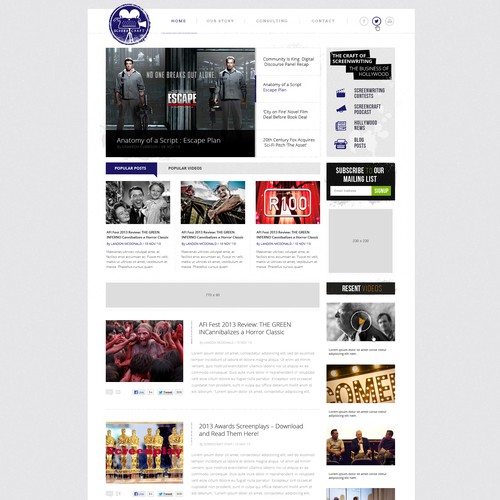The smart Trick of News Websites That Nobody is Talking About
The smart Trick of News Websites That Nobody is Talking About
Blog Article
The Ultimate Guide To News Websites
Table of ContentsLittle Known Questions About News Websites.Some Known Questions About News Websites.Get This Report about News WebsitesSome Known Details About News Websites The Greatest Guide To News Websites
It was down in the UK and Brazil however up a few other countries, such as Greece, Bulgaria, and Poland (News Websites). This year, for the very first time, we inquired about the various manner ins which people prevent the information and located that around half of avoiders (53%) were trying to do so in a broad-brush or routine way for instance, by shutting off the radio when the information came on, or by scrolling past the news in social media sitesYou claimed that you try to actively prevent information.

I'm possibly choosing to learn more light-hearted stories than I used to presently. M, 51, UK Switching my back on news is the only method I feel I can deal often. I have to purposely make the effort to avert for the purpose of my own mental health.
Some Of News Websites
Discerning evasion of Ukraine news was highest possible in most of the countries closest to the problem, enhancing searchings for from our added survey last year, not long after the war had actually begun. Our data may not recommend an absence of interest in Ukraine from neighboring nations but instead a need to take care of time or safeguard mental health from the really actual horrors of battle.
Contrasting Finland with a politically polarised country such as the USA (see next chart) that is less affected by the war, we find a very different pattern of topic evasion. In the USA, we locate that customers are much more most likely to avoid subjects such as national politics and social justice, where debates over issues such as gender, sexuality, and race have actually become highly politicised.
American national politics are rather hazardous nowadays. I find occasionally that I need to disconnect from tales that just make me angry. F, 61, USA For some people, bitter and dissentious political debates are a factor to switch off news entirely, but also for some political upholders, evasion is often regarding shutting out point of views you do not want to hear.

A Biased View of News Websites
Some are aiming to make news more accessible for hard-to-reach groups, widening the news agenda, commissioning more motivating or favorable news, or embracing useful or services journalism that give people a feeling of hope or personal company. In our study this year, we asked participants about their rate of interest in these various methods.
This explains why stories like Ukraine or nationwide politics execute well with information regulars yet can at the very same time transform less interested customers away (News Websites). Selective avoiders are much less thinking about all types of news than non-avoiders however in relative terms they do appear to be much more thinking about positive or solutions-based information

What Does News Websites Do?
2023). This may hold true in the moment, yet gradually it appears to be leaving many individuals empty and much less pleased, which may be weakening our connection with and count on the news. Across markets, overall count on news (40%) and count on the sources home individuals use themselves (46%) are down by a further 2 percentage factors this year.
Without a doubt, with the rear-view mirror, the COVID-19 trust bump is clearly visible in the following chart, though the instructions of travel afterwards has been blended. In many cases (e.g. Finland), the count on boost has been maintained, while in others the upturn looks more content like a spot in a tale of ongoing lasting decrease.
A few of the highest reported levels of media objection are located in nations with greatest degrees of question, such as Greece, the Philippines, the USA, France, and the United Kingdom. The most affordable levels of media objection are frequently in those with greater degrees of trust, such as Finland, Norway, Denmark, and Japan.
Fascination About News Websites
This year we asked participants about their choices for text, audio and video clip when consuming news online. Generally, we discover that the majority still choose to read the news (57%), instead than watch (30%) or pay attention to it (13%), but younger individuals (under-35s) are more probable to pay attention (17%) than older teams.
Behind the averages we locate significant and surprising country differences. In markets with a strong analysis tradition, such as Finland and the United Kingdom, around eight in ten still favor to review on the internet news, yet in India and Thailand, around 4 in 10 (40%) claim they choose to enjoy news online, and in the Philippines that proportion is over fifty percent (52%).
Report this page